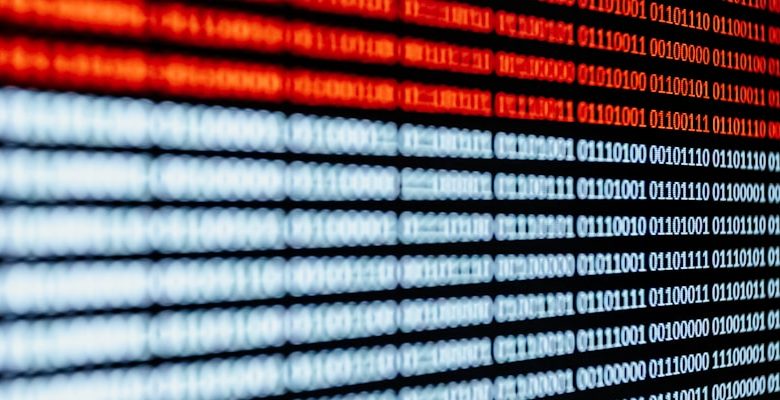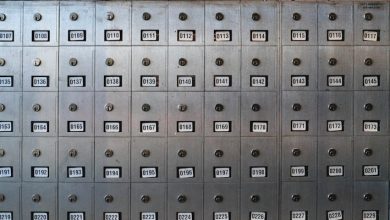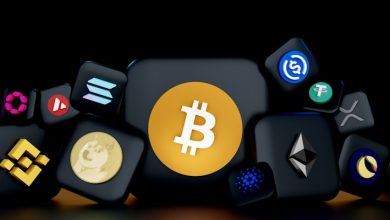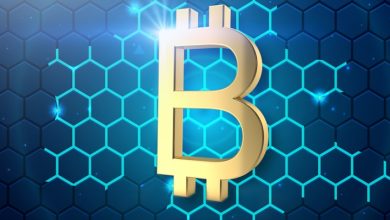The Future of Blockchain Governance: DAOs and Beyond

- Understanding the Role of DAOs in Blockchain Governance
- Challenges and Opportunities in Implementing DAOs for Decentralized Governance
- Exploring the Evolution of Governance Models in Blockchain Technology
- The Impact of Smart Contracts on the Future of Governance in Blockchain
- Governance Tokens: A New Frontier in Decentralized Decision-Making
- Regulatory Considerations for DAOs and Decentralized Governance Structures
Understanding the Role of DAOs in Blockchain Governance
Decentralized Autonomous Organizations (DAOs) play a crucial role in blockchain governance by enabling decentralized decision-making processes through smart contracts on the blockchain. DAOs are essentially self-governing entities that operate without the need for a central authority, allowing for a more transparent and democratic approach to governance.
DAOs are designed to empower community members to participate in decision-making processes, such as voting on proposals or allocating funds, based on their stake in the organization. This helps ensure that governance decisions are made collectively, rather than by a select group of individuals.
By utilizing blockchain technology, DAOs can provide a secure and tamper-proof platform for governance activities, ensuring that all transactions and decisions are recorded on the blockchain for transparency and accountability. This helps build trust among community members and reduces the risk of fraud or manipulation.
Challenges and Opportunities in Implementing DAOs for Decentralized Governance
When it comes to implementing Decentralized Autonomous Organizations (DAOs) for decentralized governance, there are both challenges and opportunities that need to be considered. One of the main challenges is the lack of clear regulatory frameworks around DAOs, which can lead to legal uncertainties and potential risks for stakeholders. However, this also presents an opportunity for innovation and the development of new governance models that can adapt to the rapidly changing regulatory landscape.
Another challenge is the potential for security vulnerabilities in DAOs, which can be exploited by malicious actors to manipulate governance processes or steal funds. To address this, robust security measures and smart contract auditing are essential to ensure the integrity and trustworthiness of the DAO system. On the flip side, the transparent and immutable nature of blockchain technology presents an opportunity to enhance trust and accountability in decentralized governance, as all transactions and decisions are recorded on the blockchain for anyone to verify.
Furthermore, scalability is a key challenge for DAOs, as the current blockchain infrastructure may not be able to support the large-scale adoption of decentralized governance systems. However, ongoing research and development efforts are focused on improving scalability through sharding, layer 2 solutions, and other innovations, which could unlock new opportunities for DAOs to operate efficiently at scale.
Exploring the Evolution of Governance Models in Blockchain Technology
The evolution of governance models in blockchain technology has been a fascinating journey. From the early days of centralized decision-making to the rise of decentralized autonomous organizations (DAOs), we have seen a significant shift in how blockchain networks are managed and governed.
One of the key benefits of DAOs is their ability to operate without a central authority, relying instead on smart contracts and token holders to make decisions collectively. This model not only enhances transparency and reduces the risk of corruption but also empowers community members to have a direct say in the direction of the network.
As blockchain technology continues to mature, we are likely to see further innovations in governance models. Hybrid approaches that combine elements of both centralized and decentralized governance may emerge, offering the best of both worlds. Additionally, new technologies such as quadratic voting and futarchy could provide alternative mechanisms for decision-making in blockchain networks.
Overall, the future of blockchain governance is bright, with DAOs paving the way for a more inclusive and democratic approach to managing decentralized systems. By exploring the evolution of governance models in blockchain technology, we can better understand the potential of these systems to revolutionize the way we interact and transact online.
The Impact of Smart Contracts on the Future of Governance in Blockchain
Smart contracts have the potential to revolutionize the way governance functions within blockchain ecosystems. By automating the execution of agreements and rules encoded within the contract, smart contracts eliminate the need for intermediaries and reduce the potential for human error or manipulation. This level of transparency and efficiency can significantly enhance the trust and reliability of governance processes.
With smart contracts, blockchain governance can become more decentralized and autonomous, allowing for greater participation and decision-making power among network participants. This shift towards a more democratic and transparent governance model could help to address issues of centralization and power imbalances that have plagued traditional governance systems.
Furthermore, smart contracts can enable the creation of Decentralized Autonomous Organizations (DAOs), which are self-governing entities that operate based on predefined rules and algorithms. DAOs can facilitate collective decision-making and resource allocation without the need for a central authority, opening up new possibilities for collaborative governance structures.
Overall, the impact of smart contracts on the future of governance in blockchain is poised to be transformative. By enabling more efficient, transparent, and decentralized governance processes, smart contracts have the potential to revolutionize the way organizations and communities interact and make decisions in the digital age.
Governance Tokens: A New Frontier in Decentralized Decision-Making
Governance tokens have emerged as a groundbreaking tool for decentralized decision-making within blockchain networks. These tokens enable holders to participate in the governance of a decentralized autonomous organization (DAO) by voting on proposals that impact the network’s future. This new frontier in blockchain governance empowers token holders to have a say in key decisions without relying on centralized authorities.
By holding governance tokens, individuals can actively engage in shaping the direction of a blockchain network. This participation is crucial for ensuring that the community’s interests are represented and that decisions are made in a transparent and inclusive manner. Governance tokens provide a mechanism for stakeholders to collectively govern the network, fostering a sense of ownership and accountability among participants.
One of the key benefits of governance tokens is their ability to align incentives among network participants. By giving token holders a stake in the decision-making process, governance tokens encourage them to act in the best interests of the network. This alignment of incentives helps to mitigate conflicts of interest and promote the long-term sustainability of the blockchain ecosystem.
Furthermore, governance tokens introduce a new level of flexibility and adaptability to blockchain governance. Token holders can propose and vote on changes to the network’s protocols, parameters, and even its underlying code. This dynamic governance model allows blockchain networks to evolve rapidly in response to changing market conditions and community needs.
Overall, governance tokens represent a significant step forward in decentralized decision-making within blockchain networks. As DAOs continue to gain traction in the crypto space, governance tokens will play an increasingly important role in shaping the future of blockchain governance. By empowering token holders to participate in key decisions, governance tokens are redefining the way that blockchain networks are governed, creating more democratic and resilient ecosystems.
Regulatory Considerations for DAOs and Decentralized Governance Structures
When considering the regulatory implications of Decentralized Autonomous Organizations (DAOs) and decentralized governance structures, it is essential to recognize the unique challenges they pose. As these entities operate without a central authority, traditional regulatory frameworks may struggle to effectively govern them. This can create uncertainty for both regulators and participants in the blockchain ecosystem.
One of the key concerns surrounding the regulation of DAOs is the issue of accountability. In a traditional organization, there are clear lines of responsibility and legal liability. However, in a DAO where decision-making is decentralized and automated, it can be challenging to determine who should be held accountable for any potential legal or regulatory violations.
Another consideration is the need for transparency in decentralized governance structures. While blockchain technology offers a high level of transparency through its immutable and auditable records, ensuring that these records comply with regulatory requirements can be complex. Regulators may struggle to access the necessary information to enforce compliance.
Moreover, the cross-border nature of blockchain technology further complicates the regulatory landscape for DAOs. With participants and operations spread across the globe, it can be difficult for regulators to coordinate and enforce consistent rules. This lack of harmonization could result in regulatory arbitrage and jurisdictional conflicts.
Overall, the regulatory considerations for DAOs and decentralized governance structures highlight the need for a nuanced and adaptable approach from regulators. Collaboration between regulators, industry stakeholders, and legal experts will be essential to develop regulatory frameworks that strike a balance between fostering innovation and protecting investors and the integrity of the financial system.



